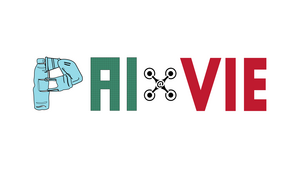Plastic pollution has a variety of global impacts and is harmful against the environment, can damage the economy and enter the food chain. The economic damage caused by plastic pollution in Vietnam is estimated at US$220 million annually, with fisheries and tourism being the most affected. It is estimated that Vietnam has the fourth highest rate of misdirected plastic waste in the world, with 0.28 to 0.73 million tons of marine plastic waste per year (Jambeck et al. 2015). The Mekong River, which flows through Vietnam in the south, is one of the ten most polluted rivers in the world (Lebreton et al. 2017). Vietnam is committed to addressing the problem of plastic waste pollution while being responsible for a significant reduction in pollution of the marine environment.
To gain knowledge about the different types of plastics and amounts of waste that enter rivers and can then be washed into the oceans, DFKI's Marine Perception research group is working on analysis of data analysis to assess the amounts, types, and locations of plastic waste. Under this project, a concept for long-term monitoring of plastic litter in rivers is being developed, based on automated detection using artificial intelligence and other methods to detect litter. This concept will enable the government to implement plastic litter monitoring systems and monitor the impact of any measures taken on reducing plastic leakage.
Partners
- Universität für Bodenkultur Wien
- Water Resources Engineering Consultancy Center

